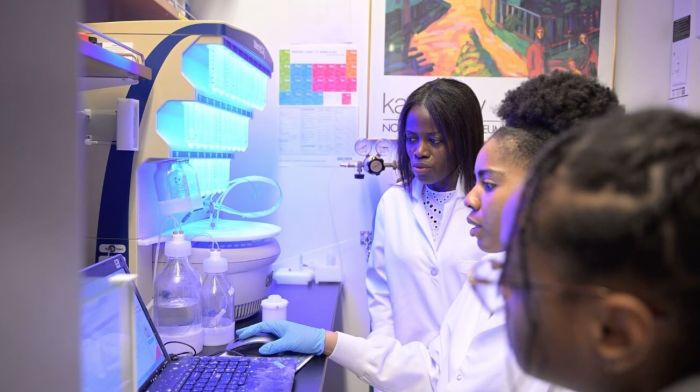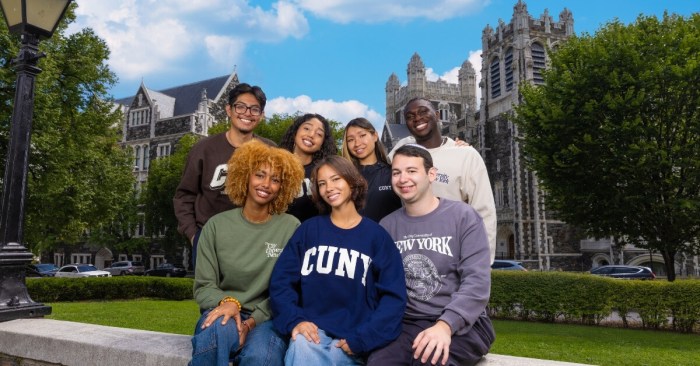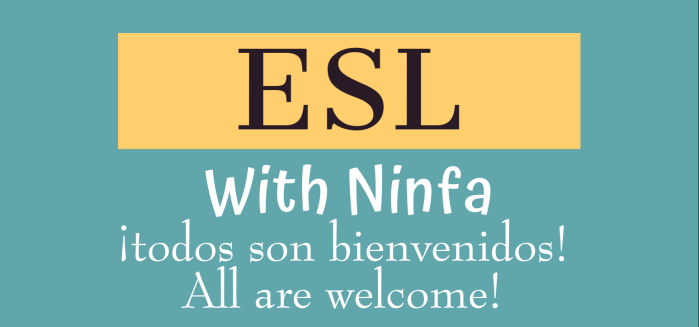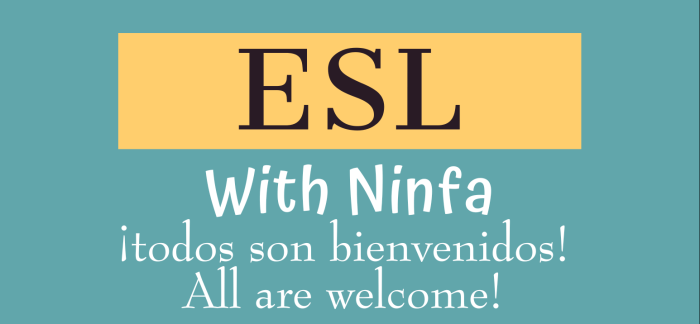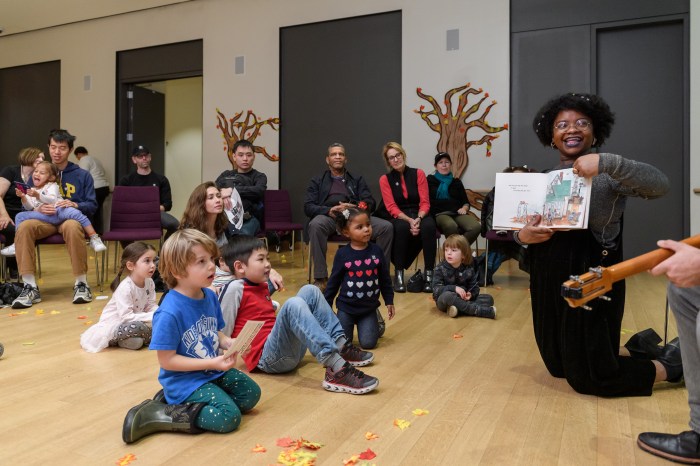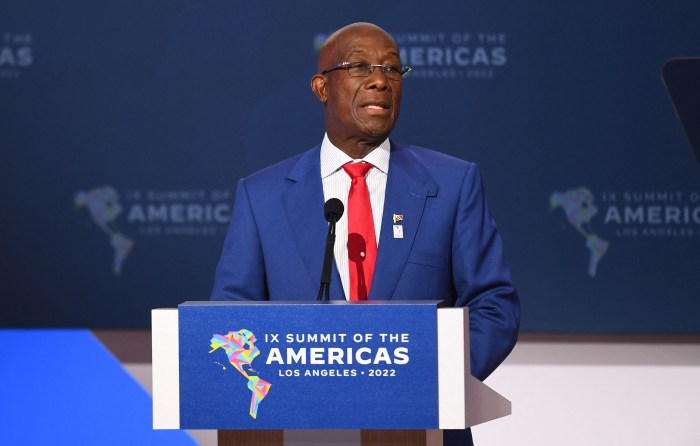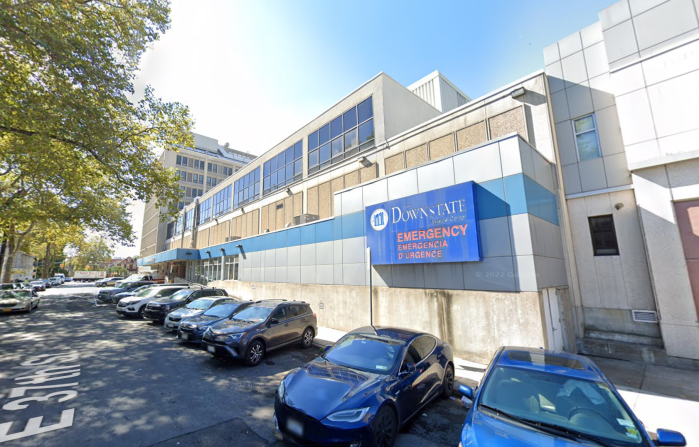When Liliana Cornejo enrolled at York College in 2019, she didn’t know about the many resources that are available to support CUNY students on their academic journeys. Cornejo, a single parent originally from Ecuador, didn’t know about financial aid or services for students who are immigrants. She wasn’t aware of resources to help students find food and housing assistance, or where to go if she needed a doctor or felt overwhelmed. And she was afraid to ask.
Cornejo, who will graduate next month with a degree in occupational therapy, knows there are many students who have similar questions and needs. Now, she is helping others find support as a paid student supervisor for CUNY CARES, an initiative the university launched this fall at CUNY’s three campuses in the Bronx, to connect more students with food, housing and health care assistance and help them meet an array of other needs.
Among other strategies, CUNY CARES recruits, trains and pays student advocates to make presentations in classrooms, use social media to spread information about supports and drive a concerted effort to reach more weekend and evening students, student-parents and students with disabilities.
“We are connecting students to lots of different opportunities and teaching them how to navigate the system independently to succeed. This is the kind of work that can change so many lives,” said Cornejo, who trains other students to work with the program at Bronx Community College.
Focus on Essential Needs
CUNY is putting a new focus on factors outside the classroom that too often pose barriers to students’ success, including mental health, hunger and unstable housing.
Half of all CUNY students come from families with household incomes under $30,000, and many find themselves struggling to meet the basic necessities of daily life. Our surveys have found that nearly four in 10 students don’t have enough to eat at times, or enough money to pay the rent and that several thousand have experienced homelessness.
Researchers, including those from CUNY’s Graduate School of Public Health and Health Policy, have found that housing and food insecurity are the strongest predictors of anxiety and depression among college students and those, in turn, pose serious impediments to their ability to stay on track for graduation.
CUNY students have access to a wide range of support services that can mitigate food and housing insecurity and promote their health and well-being. The challenge is that many students don’t know about these supports, or don’t know they are eligible, and some are reluctant to seek help for fear of being stigmatized.
We’ve found, for instance, that about 40% of CUNY students qualify to receive federal benefits like the Supplemental Nutrition Assistance Program (SNAP) and Medicaid, but only 40% of those who qualify are currently enrolled. It means that the program has the potential to bring an estimated $25 million in public benefits into the household budgets of students at our Bronx campuses.
Students Lifting Students
CUNY CARES is built on the premise that students who may be struggling or reluctant to ask for help need support from empathetic peers who may have experienced these issues themselves. Under the direction of professional staff that includes a full-time housing specialist, the program promotes access to housing assistance and campus food pantries, health care and mental health services.
This important new endeavor is funded through a public-private partnership with the Petrie Foundation and Andrew W. Mellon Foundation, along with the Mayor’s Office of Economic Opportunity and the mayor’s Public Engagement Unit. We’re piloting the program for three years at Lehman College, Hostos Community College and Bronx Community College, in the city borough that has the highest rates of poverty. It is an important piece in our work to transform CUNY into the nation’s most student-centered university, a vision that is detailed in our 2023-30 strategic roadmap.
We believe CUNY CARES has the potential to be transformative. We hope it will become a model not only for CUNY campuses across the city but for universities across the country.




